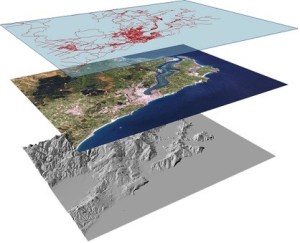Employment opportunities for a GIS Analyst have continued to expand, year over year.
With most of the major land planning now being done with the help of automated systems and computer technology, the scope of the careers being offered in this specialization has widened significantly.
In literal terms, GIS refers to a single system; a Geographic Information System that is used to analyze maps or their attributes and build relationships between them. However, this single system is made up of thousands of smaller systems and applications- each of which has its own rulebook to function seamlessly.
Hence, it doesn’t take a mere Computer Science graduate to excel in Geographic Information System. In fact, a successful career in GIS is the amalgamation of way more than just basic computer knowledge.
Do You Have What It Takes To Be A GIS Analyst?
Since GIS is a combination of many technologies, processes, systems and applications; the necessary skills needed, can be divided into five broad categories. Some of these are highly specific; while others are generic but equally important. On the other hand, a few are learnt in the classroom; while others are gained with experience.
Skills Needed For a GIS Career
GIS Skills:
- Spatial Data and Algorithms Understanding- Spatial data has very specific algorithms working on the back end. An understanding of these and the operations carried out is a must.
- Data Entry & Conversion- Entering data into the system without errors and converting different forms of data, for example, analogue maps into GIS maps.
- GIS Workflow- Understand the direction of workflow in GIS, implement on it and enhance it when needed.
- Model Building- Model building refers to the creation of basic structures on which a workflow is implemented. A GIS Analyst must know how to lay the foundation of efficient models.
- Cartography & Design- Since GIS is all about mapping, expert knowledge and skill regarding Cartography is essential. You should be able to create and present maps with proper presentation using colors and symbols.
- Basic GIS Architecture- Understanding of the basic program on which GIS is built, the various modes of communication within it and the different parts of the system.
- Understand & Design Data Models- Within a database, a GIS Analyst should be able to understand and design data models that are appropriate and fit into the overall structure of the system.
- Knowledge of SQL- Being well versed with the Structured Query Language is a must for all spatial analysts.
- Communication & Writing Skills- The need for excellent communication and writing skills is paramount.
- Bridge Needs with Solutions- It is the responsibility of the analyst to translate a client’s needs into a solution.
- Administrative Skills- Data management, budget allocation and monitoring should also be part of the skill set.
- Ability to Incorporate Multiple Domains- GIS takes into consideration fields like forestry, public safety and economic development. Therefore, knowledge of these domains and being able to apply GIS skills to these fields is a requirement for every organization that develops these systems.
- Customer Support- GIS is often used as a support tool; in which case, offering excellent customer support and engagement is a must. Being able to build long term relationships always works for the better!
Conclusion
Therefore, the skills that an analyst needs to handle a system of this nature are broad and multifaceted. See which items on this list you already have, and which ones you still need to develop.
If you’d like to experience a short, simple and amazingly easy training system that will give you an instant advantage over other GIS job applicants, click over to the following link and begin your education today. CLICK HERE: http://training.gis-university.com/5stepchallenge
References:
http://dusk.geo.orst.edu/gis/PPTs/essential_skills.pdf
http://michalisavraam.org/2009/11/the-essential-skills-to-succeed-in-a-gis-career/



